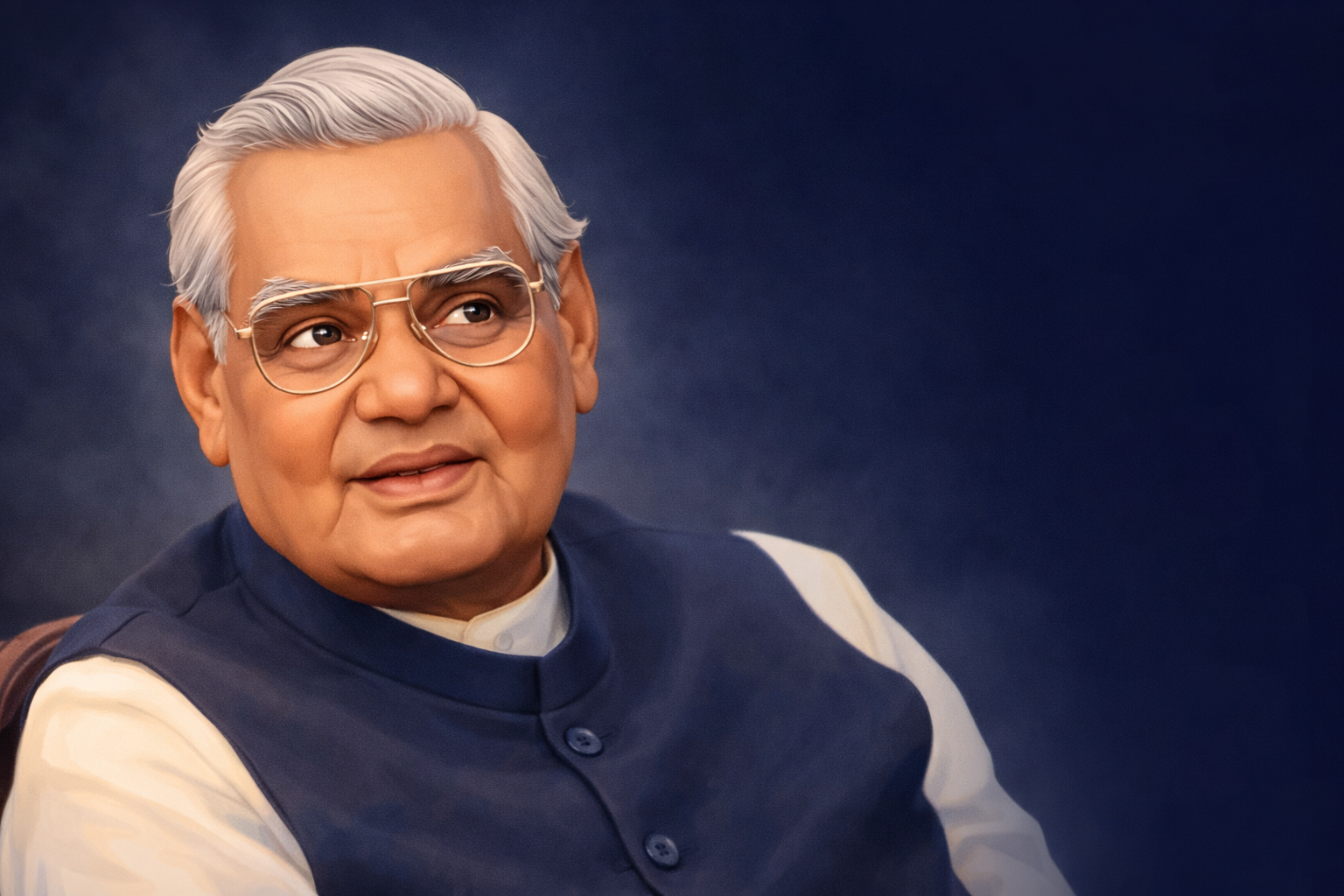On December 25, 1924, in the small town of Gwalior, Madhya Pradesh, a boy was born to a humble schoolteacher. They named him Atal Bihari Vajpayee.
From an early age, he was drawn to words. He wrote poetry, recited verses, and discovered the rhythm of language. His words would one day move not just crowds, but a nation.
“You can change friends but not neighbours.”
The Young Orator
Atalji studied political science and law, but it was his gift of oratory that set him apart. He joined the Rashtriya Swayamsevak Sangh (RSS) in his youth, where his fiery speeches and clarity of thought drew attention.
By the 1940s, he had joined the freedom struggle, editing nationalist journals and advocating for self-reliance and democracy.
The Birth of a Political Career
After independence, Vajpayee became one of the founding members of the Bharatiya Jana Sangh. In Parliament, his eloquence stunned even his opponents.
Pandit Jawaharlal Nehru himself once remarked,
“This young man will one day become the Prime Minister of India.”
“Our aim may be far, our journey difficult, but we shall not rest till we achieve our goal.”
The Leader of Opposition
Through the 1960s and 70s, Vajpayee emerged as one of the strongest opposition voices, admired across party lines for his decency and vision.
He opposed the Emergency (1975–77) with courage, spending time in jail but never abandoning democracy.
When the Janata Party government was formed in 1977, he became Minister of External Affairs.
His dignified presence at the United Nations, speaking in Hindi, made India’s voice resonate on the global stage.
The Prime Minister
In 1996, Vajpayee briefly became Prime Minister for just 13 days. Two years later, in 1998, he returned — this time with a stronger mandate.
His government conducted the Pokhran-II nuclear tests, declaring India a nuclear power while calling for peace. He extended a “bus of friendship” to Pakistan, traveling to Lahore to seek dialogue, even as conflict erupted in Kargil months later.
“You can change history, but you cannot change geography.”
The Poet at Heart
Even as a statesman, Vajpayee remained a poet. His verses spoke of hope, love for the motherland, and the resilience of the human spirit.
“Do not allow defeat to enter your heart, even if your body feels tired.”
His style of politics was marked by tolerance, respect for dissent, and the belief that democracy is strengthened, not weakened, by dialogue.
The Later Years
Vajpayee’s tenure saw economic reforms, infrastructure projects like the Golden Quadrilateral highways, and initiatives for technology and education.
In 2004, he stepped down after electoral defeat, but remained a revered figure across India. Failing health eventually silenced his public voice, but his poetry and memory endured.
On August 16, 2018, Atal Bihari Vajpayee passed away in New Delhi. The nation mourned not just a leader, but a poet, a statesman, and a man who embodied dignity in politics.
The Legacy of Atalji
Vajpayee remains one of India’s most beloved leaders — admired for his vision, revered for his words, and remembered for his rare ability to unite.
“For India, democracy is not a gift, but a sacred tradition.”
His life was proof that politics can be graceful, leadership can be poetic, and words can inspire nations.
